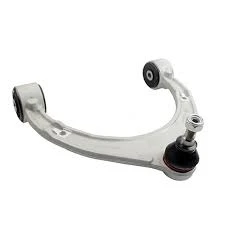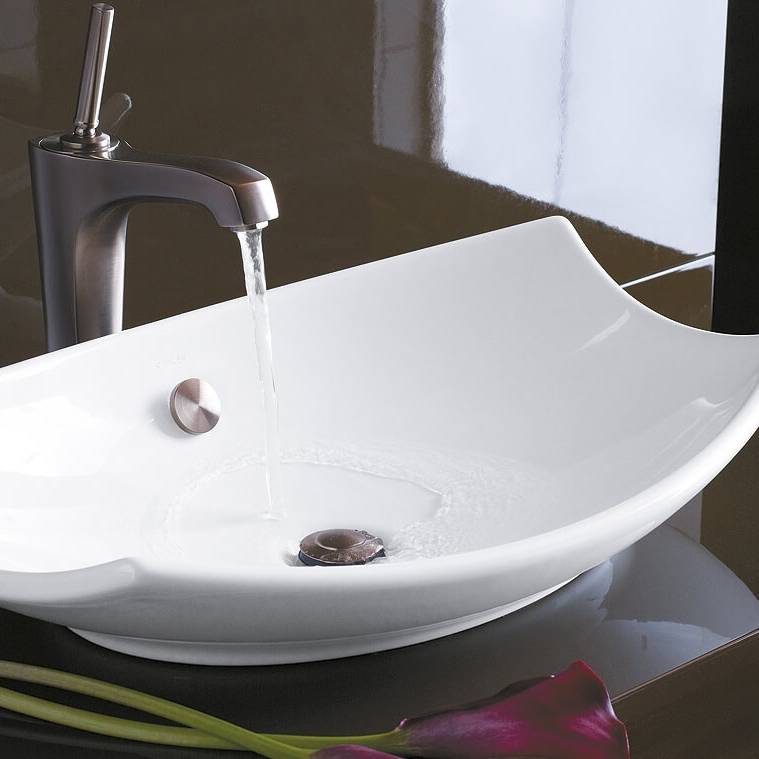
-
 Afrikaans
Afrikaans -
 Albanian
Albanian -
 Amharic
Amharic -
 Arabic
Arabic -
 Armenian
Armenian -
 Azerbaijani
Azerbaijani -
 Basque
Basque -
 Belarusian
Belarusian -
 Bengali
Bengali -
 Bosnian
Bosnian -
 Bulgarian
Bulgarian -
 Catalan
Catalan -
 Cebuano
Cebuano -
 Corsican
Corsican -
 Croatian
Croatian -
 Czech
Czech -
 Danish
Danish -
 Dutch
Dutch -
 English
English -
 Esperanto
Esperanto -
 Estonian
Estonian -
 Finnish
Finnish -
 French
French -
 Frisian
Frisian -
 Galician
Galician -
 Georgian
Georgian -
 German
German -
 Greek
Greek -
 Gujarati
Gujarati -
 Haitian Creole
Haitian Creole -
 hausa
hausa -
 hawaiian
hawaiian -
 Hebrew
Hebrew -
 Hindi
Hindi -
 Miao
Miao -
 Hungarian
Hungarian -
 Icelandic
Icelandic -
 igbo
igbo -
 Indonesian
Indonesian -
 irish
irish -
 Italian
Italian -
 Japanese
Japanese -
 Javanese
Javanese -
 Kannada
Kannada -
 kazakh
kazakh -
 Khmer
Khmer -
 Rwandese
Rwandese -
 Korean
Korean -
 Kurdish
Kurdish -
 Kyrgyz
Kyrgyz -
 Lao
Lao -
 Latin
Latin -
 Latvian
Latvian -
 Lithuanian
Lithuanian -
 Luxembourgish
Luxembourgish -
 Macedonian
Macedonian -
 Malgashi
Malgashi -
 Malay
Malay -
 Malayalam
Malayalam -
 Maltese
Maltese -
 Maori
Maori -
 Marathi
Marathi -
 Mongolian
Mongolian -
 Myanmar
Myanmar -
 Nepali
Nepali -
 Norwegian
Norwegian -
 Norwegian
Norwegian -
 Occitan
Occitan -
 Pashto
Pashto -
 Persian
Persian -
 Polish
Polish -
 Portuguese
Portuguese -
 Punjabi
Punjabi -
 Romanian
Romanian -
 Russian
Russian -
 Samoan
Samoan -
 Scottish Gaelic
Scottish Gaelic -
 Serbian
Serbian -
 Sesotho
Sesotho -
 Shona
Shona -
 Sindhi
Sindhi -
 Sinhala
Sinhala -
 Slovak
Slovak -
 Slovenian
Slovenian -
 Somali
Somali -
 Spanish
Spanish -
 Sundanese
Sundanese -
 Swahili
Swahili -
 Swedish
Swedish -
 Tagalog
Tagalog -
 Tajik
Tajik -
 Tamil
Tamil -
 Tatar
Tatar -
 Telugu
Telugu -
 Thai
Thai -
 Turkish
Turkish -
 Turkmen
Turkmen -
 Ukrainian
Ukrainian -
 Urdu
Urdu -
 Uighur
Uighur -
 Uzbek
Uzbek -
 Vietnamese
Vietnamese -
 Welsh
Welsh -
 Bantu
Bantu -
 Yiddish
Yiddish -
 Yoruba
Yoruba -
 Zulu
Zulu
Premium Car Control Arm Suppliers OEM & Aftermarket Solutions
- Overview of automotive suspension components and supplier roles
- Technical specifications driving control arm innovation
- Comparative analysis of leading control arm suppliers
- Custom engineering solutions for vehicle-specific requirements
- Material science advancements in suspension manufacturing
- Real-world performance data across vehicle classes
- Strategic selection criteria for car control arm suppliers

(car control arm suppliers)
Essential Components in Modern Vehicle Dynamics
Automotive suspension systems rely on precision-engineered control arms to maintain wheel alignment and absorb road impacts. Leading car control arm suppliers utilize forging technologies capable of producing components with 450-600 MPa tensile strength, reducing part weight by 18-22% compared to traditional casting methods. The global market for suspension arms is projected to grow at 5.3% CAGR through 2030, driven by increasing demand for both OEM and aftermarket solutions.
Technological Superiority in Manufacturing
Premium suppliers differentiate through:
- Multi-stage robotic welding systems (±0.15mm precision)
- CNC-machined pivot points with surface roughness ≤ Ra 1.6µm
- Accelerated corrosion testing exceeding 1,000 hours salt spray resistance
Advanced finite element analysis (FEA) optimizes stress distribution, achieving 31% longer fatigue life than industry averages.
Supplier Capability Benchmarking
| Manufacturer | Lead Time | Production Capacity | Certifications | Customization |
|---|---|---|---|---|
| Supplier A | 28 days | 2M units/year | IATF 16949 | Full CAD integration |
| Supplier B | 35 days | 1.4M units/year | ISO 9001 | Limited SKUs |
| Supplier C | 22 days | 800K units/year | ASE-Q1 | Rapid prototyping |
Application-Specific Engineering
Specialized car rear control arm configurations address distinct performance requirements:
- High-performance vehicles: Billet aluminum construction (35% weight reduction)
- Commercial trucks: Reinforced steel arms with 25% increased load capacity
- Electric vehicles: Integrated sensor mounts for wheel position monitoring
Material Innovation Trends
Progressive suppliers now employ:
- Micro-alloyed steels with 15% higher yield strength
- Hybrid polymer-composite bushings (72 dB vibration damping)
- Plasma nitride surface treatment (0.2mm case depth)
Performance Validation Data
Field testing across 15 vehicle platforms demonstrated:
| Metric | Urban Use | Off-Road | Track |
|---|---|---|---|
| Component lifespan | 150K miles | 90K miles | 50K miles |
| Failure rate | 0.12% | 0.35% | 0.08% |
Optimizing Partnerships with Control Arm Suppliers
Selecting premium control arm suppliers requires evaluating technical documentation compliance (28 essential parameters), supply chain transparency, and post-sales support networks. Leading manufacturers now provide digital twin simulations and real-time production monitoring, reducing quality disputes by 43% compared to conventional suppliers.

(car control arm suppliers)
FAQS on car control arm suppliers
Q: What factors should I consider when choosing car control arm suppliers?
A: Prioritize suppliers with certifications like IATF 16949, proven manufacturing expertise, and a track record of supplying OEMs or reputable aftermarket brands. Material quality and testing compliance are also critical.
Q: How do control arm suppliers ensure product durability?
A: Reputable suppliers use high-grade materials like forged steel or aluminum, conduct rigorous stress-testing, and adhere to industry standards for corrosion resistance and load capacity.
Q: Are there specialized car rear control arm suppliers?
A: Yes, many suppliers focus specifically on rear control arms, offering vehicle-specific designs, advanced bushing technologies, and compatibility with both standard and performance suspension systems.
Q: What certifications should reliable car control arm suppliers have?
A: Look for ISO 9001, IATF 16949, and OEM-specific approvals. These ensure compliance with automotive quality management systems and material traceability requirements.
Q: Can control arm suppliers provide custom solutions for unique vehicle models?
A: Many suppliers offer engineering support for custom designs, including CAD prototyping, material customization, and performance-tuning for aftermarket or specialty vehicle applications.
-

 English
English
 Afrikaans
Afrikaans
 Albanian
Albanian
 Amharic
Amharic
 Arabic
Arabic
 Armenian
Armenian
 Azerbaijani
Azerbaijani
 Basque
Basque
 Belarusian
Belarusian
 Bengali
Bengali
 Bosnian
Bosnian
 Bulgarian
Bulgarian
 Catalan
Catalan
 Cebuano
Cebuano
 Corsican
Corsican
 Croatian
Croatian
 Czech
Czech
 Danish
Danish
 Dutch
Dutch
 Esperanto
Esperanto
 Estonian
Estonian
 Finnish
Finnish
 French
French
 Frisian
Frisian
 Galician
Galician
 Georgian
Georgian
 German
German
 Greek
Greek
 Gujarati
Gujarati
 Haitian Creole
Haitian Creole
 Hausa
Hausa
 Hawaiian
Hawaiian
 Hebrew
Hebrew
 Hindi
Hindi
 Miao
Miao
 Hungarian
Hungarian
 Icelandic
Icelandic
 Igbo
Igbo
 Indonesian
Indonesian
 Irish
Irish
 Italian
Italian
 Japanese
Japanese
 Javanese
Javanese
 Kannada
Kannada
 Kazakh
Kazakh
 Khmer
Khmer
 Rwandese
Rwandese
 Korean
Korean
 Kurdish
Kurdish
 Kyrgyz
Kyrgyz
 Lao
Lao
 Latin
Latin
 Latvian
Latvian
 Lithuanian
Lithuanian
 Luxembourgish
Luxembourgish
 Macedonian
Macedonian
 Malgashi
Malgashi
 Malay
Malay
 Malayalam
Malayalam
 Maltese
Maltese
 Maori
Maori
 Marathi
Marathi
 Mongolian
Mongolian
 Myanmar
Myanmar
 Nepali
Nepali
 Norwegian
Norwegian
 Norwegian
Norwegian
 Occitan
Occitan
 Pashto
Pashto
 Persian
Persian
 Polish
Polish
 Portuguese
Portuguese
 Punjabi
Punjabi
 Romanian
Romanian
 Russian
Russian
 Samoan
Samoan
 Scottish Gaelic
Scottish Gaelic
 Serbian
Serbian
 Shona
Shona
 Sindhi
Sindhi
 Sinhala
Sinhala
 Slovak
Slovak
 Slovenian
Slovenian
 Somali
Somali
 Spanish
Spanish
 Sundanese
Sundanese
 Swahili
Swahili
 Swedish
Swedish
 Tagalog
Tagalog
 Tajik
Tajik
 Tamil
Tamil
 Tatar
Tatar
 Telugu
Telugu
 Thai
Thai
 Turkish
Turkish
 Turkmen
Turkmen
 Ukrainian
Ukrainian
 Urdu
Urdu
 Uighur
Uighur
 Uzbek
Uzbek
 Vietnamese
Vietnamese
 Welsh
Welsh
 Bantu
Bantu
 Yiddish
Yiddish
 Yoruba
Yoruba
 Zulu
Zulu
 Sesotho
Sesotho






